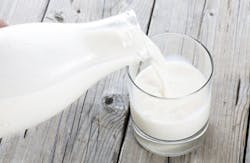The U.S. Centers for Disease Control and Prevention (CDC) is calling for a ban or a restriction on the sale of raw milk, as a means to reduce the number of foodborne diseases originating from raw milk consumption.
In a letter sent to state epidemiologists and public health veterinarians, Robert Tauxe, deputy director of the CDC's Division of Foodborne, Waterborne, and Environmental Diseases, pointed out that raw milk was a serious public health concern and recommended measures that would restrict access to raw milk on the market.
Raw milk often contains bacteria, such as E.coli and campylobacter, which are killed during pasteurization. Consuming raw milk poses a serious threat, as living E.coli can cause hemolytic uremic syndrome, which in turn leads to kidney failure. Campylobacter can result in Guillain-BarrÈ Syndrome, which may lead to paralysis. According to data from the CDC, most diseases caused by raw milk consumption between 2007 and 2012 were linked with these two types of bacteria, with at least 20 percent of them affecting children under the age of five, Food Poisoning Bulletin reported.
Tauxe stated in his letter that in the six years leading up to 2012 there were 81 outbreaks linked to raw milk in the United States, with a total of 979 people affected and 73 hospitalizations. More than four in five of these outbreaks occurred in states where raw milk is sold without any restrictions, he noted.
